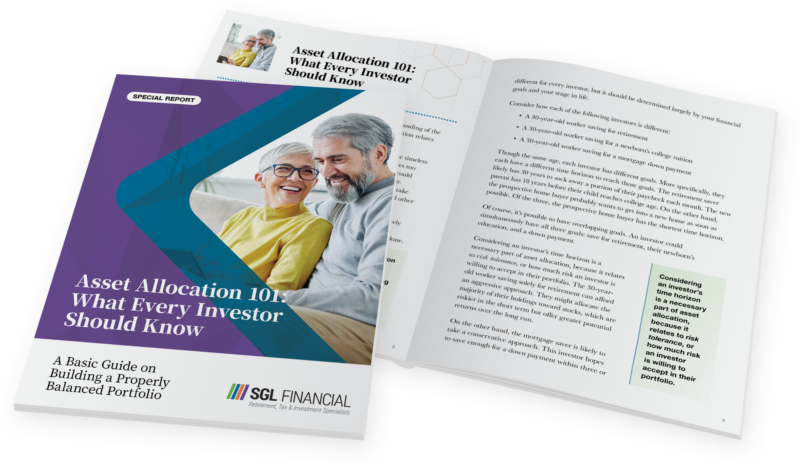Wealth Management vs. Investment Management
by Gabriel Lewit

If we asked a hundred people on the street to tell us about wealth management and investment management, and the difference between the two, you can bet that well over half of them would respond, “Aren’t they basically the same thing?”
But as financial professionals, we know that they are not. And if you have a job, a family or money, or if you plan to retire someday – so basically, everyone – you should also know the difference, as well as when you might need each.
What is investment management?
The best way to describe one, especially with regard to how it compares to the other, is that investment management is actually just one part of wealth management. It’s a branch on the wealth management tree.
An investment manager, in short, works primarily with assets, investment accounts and portfolios. We’re talking 401(k)s, brokerage accounts, and individual retirement accounts (IRAs).
An investment manager can assist you with financial tasks that are mostly limited to the investment sphere, and might include creating and supervising a financial portfolio and investments, making suggestions for potential investment options, based on current market trends, and help you buy and sell stocks, bonds and mutual funds.
For the rest of your financial needs – like taxes, retirement planning, insurance options, etc., that fall outside the scope of an investment manager, you should look to a wealth manager.
What is wealth management?
Wealth management, also known as comprehensive wealth management, is the total package of financial planning services. To stick with the wealth-management tree metaphor, other branches of a wealth manager’s service offerings include estate planning, tax planning, financial planning and risk management.
Where an investment manager’s main focus is on your portfolio, i.e. “your investments,” a wealth manager takes a more whole-picture, head-to-toe approach to helping you with your financial needs, and covering all the potential in-betweens, like charitable giving, saving for your children’s and grandchildren’s college education, living sustainably in retirement, choosing the most appropriate life insurance coverage, and so on.
When you hire a wealth manager, they are likely to devote the kind of holistic, personal attention, expertise and knowledge to your finances that you would give your own financial planning, if you only had the time and experience yourself.
You will also find that a wealth manager will want to get to know you as a person and to learn about your personality, beliefs and goals, so they can better help you create the best plans for you and your financial situation.
In other words, a comprehensive wealth manager is like a financial concierge, whose only goal is to help you achieve your goals.
Do you need an investment manager or a wealth manager?
Depending on your financial situation and which station your train of life is pulling into, you may have use for a wealth manager or an investment manager, or possibly even both. And hopefully by knowing a little more about who each one is and what they do, the decision will be easier for you to make.
If you’re single and just starting out, you might need only an investment manager to help you build your portfolio. On the other hand, if you’ve got a family, a mortgage and are juggling a couple of retirement accounts, you may want a wealth manager who can mind your portfolio and also tend to the many other financial aspects that come along with life.
Consider your current financial situation and your goals. Do you want to start planning for income and expenses in retirement, establish a trust, or develop strategies for mitigating inflation risk? Go with a wealth manager.
Do you want to get started with investing, want to hand off supervision of (or combine) your multiple retirement accounts, or did you recently receive an inheritance you want to invest? An investment manager may be your best bet.
The decision ultimately depends on you, how involved you want to be in your financial planning, how much knowledge and experience you have and how much guidance you’d want from a financial professional.
Other things you need to know
 Whichever route you decide to take, there are a few important things you need to learn about a potential financial advisor. There are no right or wrong answers here; it’s really just a matter of your personal comfort and preference. Financial Advisors do not come in just ‘a one type fits all’ category. It’s okay to ask questions and we want you to.
Whichever route you decide to take, there are a few important things you need to learn about a potential financial advisor. There are no right or wrong answers here; it’s really just a matter of your personal comfort and preference. Financial Advisors do not come in just ‘a one type fits all’ category. It’s okay to ask questions and we want you to.
The first thing to ask a candidate is whether or not they are a fiduciary – if they are, this means they are obligated, by law, to act in your best interest, even if that runs counterintuitive to their own.
You should also discuss and understand a financial pro’s fee structures and commission policies. Ask whether they work on a fee-only or fee-based basis. Don’t be afraid to ask for more specifics, or question the transparency of their fee structures. And remember to consider how the fee structure will affect you specifically – how much can you expect to pay?
Next, talk about a check-in schedule. How often should you meet with your financial advisor? Experts recommend conducting a thorough financial review at least once a year, and possibly in between if anything significant has changed (new job, new baby, etc.), or more often as you get closer to retirement age.
Finally, know that the more you inform yourself, the closer you are to finding the right financial advisor for you. Information leads to questions. At SGL Financial, we love educating our Greater Chicagoland Area clients and answering their questions. Contact Us today with your questions and learn more about how you can be leading a financially healthy life with the support of a focused financial advisor.
